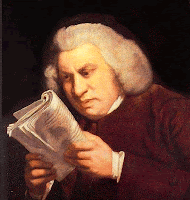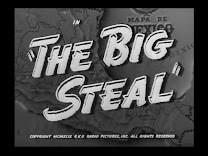Monkey Business and the Battles Over Advances
In the 1932 comedy Monkey Business, Groucho Marx says “Oh, I know it’s a penny here and a penny there, but look at me. I worked myself up from nothing to a state of extreme poverty.” The line, attributed to book author and screenwriter, S.J. Perelman, serves as fitting commentary on the typical earnings of authors. According to the Authors Guild, the median author income in 2022, when considering both book royalties and other author-related income combined, was reported to be just $20,00.
With all the right arguments at his disposal, Perelman playfully suggested that Cerf would do well to send him back to his typewriter with a "happy grin and a high heart," rather than "donating his money to an animal hospital." Perelman, renowned for being a penny pincher, clearly recognized the importance of having a high-priced fountain pen-for-hire to scrutinize his contracts. While I'm not suggesting each negotiation should be witty dance between author and editor, don't be afraid allow humor to take center stage. It the right situation humor can break up the tension and possibly create an atmosphere of goodwill.
When a contract is negotiated between an author and a publisher, the author is generally paid a nonrefundable advance against future royalty income. That means the author won't see another dime until their advance is earned back. An advance is a bet the publisher places on a book. Regrettably, traditional publishers are buying fewer books, and advances have been heading south for over a decade.
Generally, publishers base advances on the number of copies they project to sell in the first six months to a year after initial publication. Clearly, Perelman's publisher was not expecting stellar sales. Publishers look at the royalty payout to the author on each copy sold. They then multiply that by the number of copies they project to sell (less a deduction for anticipated returns). If a publisher pays an advance of $50,000 for a first novel, assuming a royalty of 8% of a cover price of $19.95 (think trade paperback original), or $1.59 a copy, that means the publisher will have to sell more than 31,446 copies before the advance is earned out and the author earns a nickel more than the $50,000 already paid. During negotiations, it's important for the agent or author to ask how many copies the publisher thinks they will sell and at what price. Before being offered a contract consider asking your editor to lunch. After they've imbibed at least one glass of wine, it's time to ask "How many do you think you can sell?" In vino veritas.
Strange Relationship Between Writers & Money
Unlike Perelman, author Kurt Vonnegut had a different relationship with money and the writing process. Rebelling against the "more is better" approach to advances, he advised his son (author Mark Vonnegut) “to carry on without an advance” while working on his first book. You can read the complete letter he wrote to his son in Kurt Vonnegut: Letters, but here's an excerpt:
I have mixed feelings about advances on first books. They are hard to get, for one thing, and are usually so small that they tie you up without appreciably improving your financial situation. Also, I have seen a lot of writers stop writing or at least slow down after getting an advance. They have a feeling of completion after making a deal. That’s bad news creatively. If you are within a few months of having a finished, edited manuscript, I advise you to carry on without an advance, without that false feeling of completion, without that bit of good news to announce to a lot of people before the job is really done.

Calvin Trillin's contract negotiation advice is colored by an insider's cynicism fed by extravagant author lunches and familiarity with the entire publishing scene - not a law degree. His singular advice was “the advance for a book should be at least as much as the cost of the lunch at which it was discussed.”
A corollary to Trillins’ formula governing advances: The cost of clearing permissions should never exceed the size of the advance. Think carefully about the book you want to write as the cost of clearing rights to previously published material can bankrupt you.
Thackery wrote, "the rewards of the profession are not to be measured by the money standard." While the size of the advance is not always an accurate predictor of a book's success, an author who receives a small advance invariably receives less promotional support from their publisher than one who receives what PublishersMarketplace calls a good deal ($50,000 - $99,000), or a significant deal ($100,000 - $250,000). A nice deal ranges from $0 - $49,000.
But, it's not all doom and gloom for the recipients of a nice deal. Tom Clancy's The Hunt for Red October ($5,000), published by The Naval Institute Press, sold millions of copies. Terry Pratchett, Stephen King, Jacqueline Susann, and JK Rowling all received small advances for their first books, which goes to show that publishing is a perplexing business where small bets can pay off big, and big ones can come back to haunt you.
According to Victor Bohnam Carter's book, Authors by Profession, John Milton, amid a financial crisis, signed a hellish publishing contract for his epic poem, Paradise Lost. “The agreement was dated April 27, 1667, and provided that Milton receive £5 for the first edition or impression of 1300 copies, £5 for the second, and the same for the third.” During his lifetime, Milton received a total of £10 from his publisher Samuel Symons. Milton’s widow later sold the copyright to Symons for £8. Edgar Allan Poe died virtually penniless, having risen above the poverty line only once during a fourteen-year period between 1835 and 1849. Similarly, Walt Whitman lived his whole life in poverty. To paraphrase Kinky Friedman, they were ahead of their time and behind on the rent.
Things were no better for authors in ancient Rome. How do we know? The poet Horace (who coined the phrase “carpe diem”) grumbled loudly that his works brought the Sosii brothers (his publishers) gold, but, him, only fame. Hic meret aera liber Sosiis, hic et mare transit, Et longum noto scriptori prorogat alvum. — (Art. Poet., 345)
I do not believe that the terms of a contract are often the reason for an author’s dissatisfaction, as may be supposed. There are barrack room lawyers among authors, but they are very few. For the most part authors are content with the terms they receive. If they have an agent, the publisher cannot be held responsible; if they have not, they usually have little understanding of royalty scales and advances and are grateful for what they receive." Joseph went on to say that "nowadays there can be few publishers foolish enough to underpay their authors.Joseph was living in an analog world. In his day, traditionally published authors would accept low royalties to get their books to market. That was before the self-publishing revolution. Many authors are saying no to 25% royalties offered by traditional publishers, opting for self-publishing, where they can receive 70% of the list price of an eBook sold on Amazon. At the same time, it's not uncommon for published authors to jump from house to house, seduced by financial offers from competing publishers.“I never saw an author in my life,” wrote Oliver Wendell Holmes, “saving perhaps one, that did not purr audibly as a full-grown domestic cat on his fur smoothed the right way by a skilled hand.”
Conclusion
In a 1956 letter to travel writer Leila Hadley, S.J. Perelman shared his philosophy about the business of publishing: “[T]he only rule of thumb I know is, get the biggest advance you can (which in turn forces them to try to recoup their investment) and be as demanding on advertising, publicity, etc. as is consonant with your decency.” Categorizing the common practice of only advertising a book after it begins to sell as “Alice-in-Wonderland” thinking, he urged Ms. Hadley to “be on the ground and participate in all the Martha Dean, Tex and Jinx, and TV panels merde you can evolve.” Not bad advice.
Related Posts
Outside of Dog #1: Mark Twain's 1900 eBook Contract
(http://www.copylaw.org/2010/02/mark-twains-1909-e-book-deal.html)
Outside of a Dog#3: Poe's Legal Woes
http://www.copylaw.org/2011/12/inside-dog-quarrel-among-literati.html)














